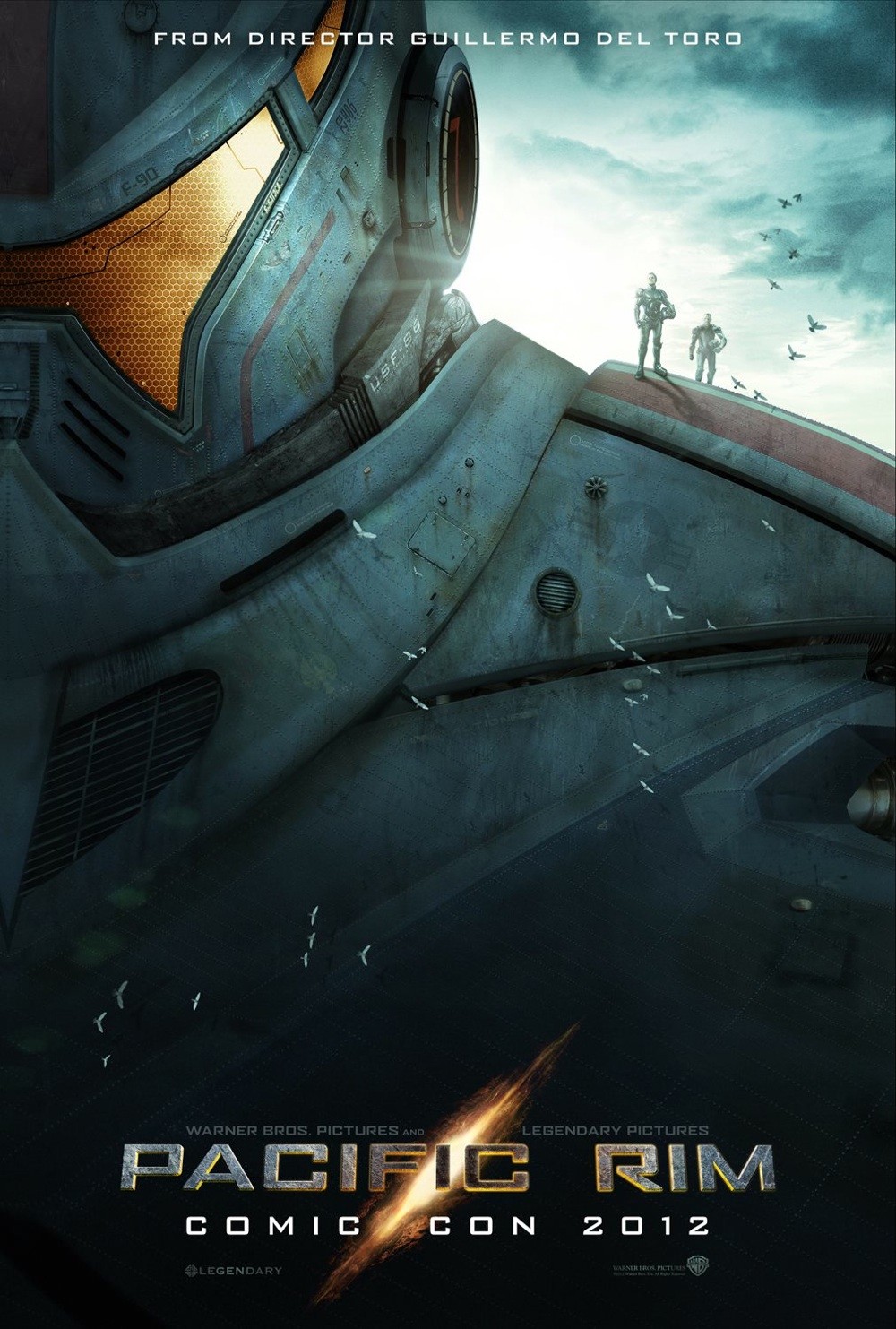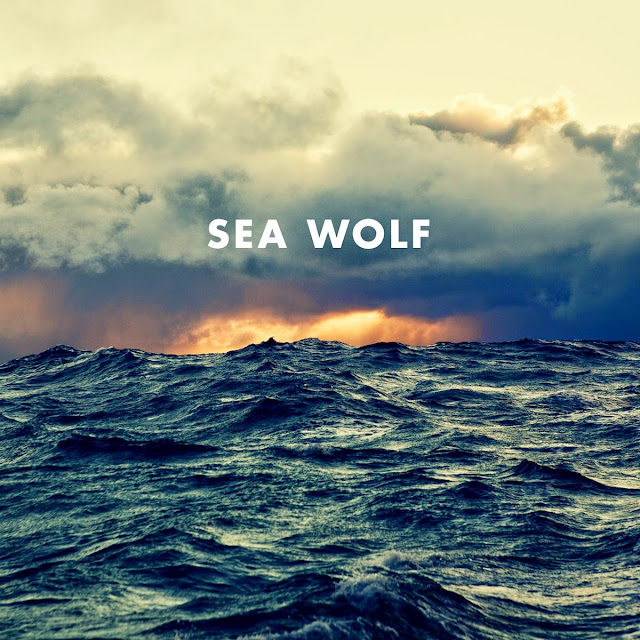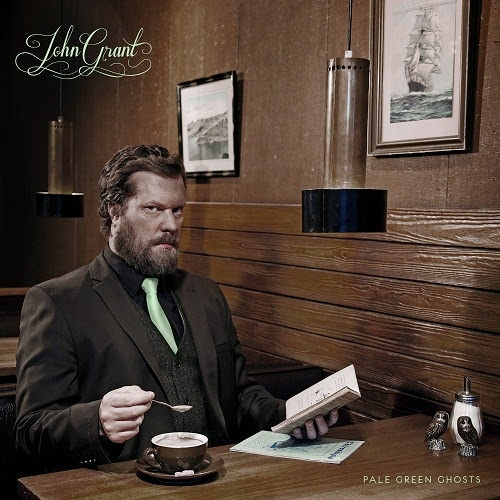It's a simple line from a seemingly simple movie, yet it sticks with you. Or, at least with some people. I shoot the quote in a text to my pal Cale and within moments he's regurgitating quotes from the film back to me, text after text. It's uncanny. Every so often, I make an attempt to stump the guy as I casually catch an "older" film but I fail over and over with what I perceive as a fairly obscure quote. It's just not in me to remember them: I've never been one to memorize song lyrics either, but I'll certainly recognize a great quote when I hear it. What strikes me is how quickly he can respond, and I know that we were replaying the same scene in our minds at the same time, hundreds of clicks away. It was a decent film in 2007, and an even greater film now.
That is to say, I keep revisiting the movie and I seem to enjoy it more so every time. So it was my responsibility to see the original that got everyone involved to do a remake. Certainly, I'm glad that I did, but then I also see why it took fifty years (literally) for a remake to come out. It's also worth noting the state of remakes that we're in now. Look at that number: 50. Fifty years. That's a lifetime for a movie to go untouched, to be lost to time. A lifetime for an entire generation (or two) to approach the remake without any knowledge of the source. Now, you can't go to a movie without knowing that it's a remake, or reboot, or what have you. And the prime offender lies in Spider-Man: where a reboot is launched a mere five years after the latest iteration. If there's money to be made, nothing is sacred. A part of me thinks that the longer a movie can sit without being remade, the better: the reasoning is that the original was so good it couldn't be topped. But I also see the failure in logic there too, as great movies from the eighties are being remade into inferior knock-offs in the hope of making a buck. The new Total Recall had better special effects, but it lacked a soul. There is nothing to stop them from trying again in a few years.
 The 3:10 remake isn't an inferior knock-off. It stands alone as a distinctly different movie that reflects modern movies. The pacing of the film, the acting, dialogue and action is all modernized so that we can consume it without feeling weird. Which is what happens when I watch the 3:10 from 1957. It's a product of a time that I can't fathom, as I'm so far removed from it: my dad was only two years old when it came out, and was surely forgotten by the time he took an active interest in film. It would make sense then, that I'm infinitely more comfortable watching movies from the late sixties and seventies (which are mainly composed of horror films like The Amityville Horror and The Omen). My dad grew up with those films, and was at an age where those films will be immortalized in nostalgia. In turn, he shows me those movies when I'm around the same age as he first took them in, and they distinctly shape my interest in film. But they lose out a little: movies from the late eighties and early nineties make up the bulk of my youth and are immortalized to a point where I would eagerly sit my children down in front of a Schwarzenegger marathon with a sprinkling of Willis and Stallone for good measure. And it comes full circle: my father has always had an interest in westerns that I've never really shared, and it stands to reason that his father would have him watching older films and series from the forties and fifties, including Yuma (although I would also point out how difficult it would be to actively do such a thing "back then" without a viable home video distribution system: you were pretty much limited to what was going to be broadcast on the three channels you received. Still.)
The 3:10 remake isn't an inferior knock-off. It stands alone as a distinctly different movie that reflects modern movies. The pacing of the film, the acting, dialogue and action is all modernized so that we can consume it without feeling weird. Which is what happens when I watch the 3:10 from 1957. It's a product of a time that I can't fathom, as I'm so far removed from it: my dad was only two years old when it came out, and was surely forgotten by the time he took an active interest in film. It would make sense then, that I'm infinitely more comfortable watching movies from the late sixties and seventies (which are mainly composed of horror films like The Amityville Horror and The Omen). My dad grew up with those films, and was at an age where those films will be immortalized in nostalgia. In turn, he shows me those movies when I'm around the same age as he first took them in, and they distinctly shape my interest in film. But they lose out a little: movies from the late eighties and early nineties make up the bulk of my youth and are immortalized to a point where I would eagerly sit my children down in front of a Schwarzenegger marathon with a sprinkling of Willis and Stallone for good measure. And it comes full circle: my father has always had an interest in westerns that I've never really shared, and it stands to reason that his father would have him watching older films and series from the forties and fifties, including Yuma (although I would also point out how difficult it would be to actively do such a thing "back then" without a viable home video distribution system: you were pretty much limited to what was going to be broadcast on the three channels you received. Still.)It also struck me how amazingly similar the two Yuma's are, especially at heart. Yuma follows Dan, a rancher with two boys, a wife and a farm caught in the drought to look after. Dan and his boys witness Ben Wade, infamous outlaw, hijacking some gold and shooting a gun-for-hire. They keep their distance and it's clearly established what Dan's priorities are: he in fact talks with the gang about returning his cattle, which they so nicely do. But Wade wanders into town and is captured by local law enforcement, and Dan is convinced to help bring him to Yuma, to catch the 3:10 train that will bring Wade to prison, and presumably where they would collect some kind of reward. Dan is promised two hundred dollars for his services, which he can't pass up: he really needs the cash. Dan can't catch a break, and this act - while lining up with his morales - is really just business. It's also an opportunity to show his bravery to his somewhat disrespectful boys.
This is one way the two movies split: in 1957, Dan's boys seem to respect him but want him to do more. They want their dad to go help the victims of the robbery, and are a bit flustered when he doesn't. In 2007, the boys are portrayed much more negatively: they have zero respect for their father. The older one (older now than they were in the 57 version) is eager to take matters into his own hands while constantly shooting his father looks of disapproval while at the same time trying to prove his own worth as a man, driven by a fear of falling into his father's shadow of perceived failure. This kid even takes it upon himself to sneak out with the group escorting Wade, much to the surprise and chagrin of his father. Immediately his son seems to idolize Wade as being the man his father isn't: free-willed, brave and charming. It's kind of the man he wants to be, but also at the same time recognizing that he's still an outlaw who's done some real nasty stuff over the years. It's also how you - the viewer - feels watching Wade in the 57 Yuma. This guy has charm, and is so incredibly well acted by Glenn Ford that it would put Crowe to shame if he tried to outpace the original. Crowe doesn't: he's smart enough to know to stick with a good thing, and emulates Ford's character as best he can. In the original, Dan's son doesn't come along for the ride or the action, although his wife does show up near the end just in time for Dan to escort Wade from the hotel to the train station. It certainly changes the film quite a bit.
When Dan is confronted with the disappointment of his son in person, he's motivated not just by the money, but by the opportunity to show his son first-hand what being a good guy can accomplish. In the original, he's not trying to prove to his son how brave he is, but instead instilling what his wife already knows, and is able to pass on to their family: his strong morals, beliefs and commitment to doing the right thing at the right time. Regardless, Wade sees Dan's strong character and respects him nonetheless by the end of the film - everybody else flees while Dan sticks to his guns - and decides to help him out by cooperating in the final push to get him onto the train. He makes note in both versions that he's broken out of Yuma numerous times before, almost making a farce of what has gone down. But it avoids farce in its portrayal of Dan's journey and commitment to doing the right thing, while developing a strong bond between the two men that makes Wade's actions believable. It also instills what we've grown to see in Wade, in that he's a pretty decent guy and a potential modern-day Robin Hood as he seems to have the right motives and is only killing other bad guys.
While Wade is the leader of this gang, he is knocked down in ranks of general bad-assery by Charlie Prince, played with excellent malevolence by Ben Foster. Charlie is in the 57 version as well, but not to any degree as the modern remake. Charlie is a stone cold killer, who takes pleasure in what he does and is accurately described as evil. Even in the ranks of a gang of villains, it would seem that Wade is the best of the bunch, although by his own admission: "I wouldn't last five minutes leading an outfit like that if I wasn't as rotten as hell." It's clear he's done bad things in the past, but on screen we see the softer side that his own friends don't know about. In fact, we may be witness to the final transformation of a character. I can recall learning in high school English that a good story would involve a protagonist who undergoes a change. Well, Dan doesn't really change: he's a steadfast good guy. Wade, on the other hand, does change. He murders his entire gang at the end after undertaking this journey with Dan, and will presumably lead a more just life after breaking out of Yuma. Sure, he's not going all good, but we - the audience - can take solace in knowing that he'll only be killing those who deserve it.
The other way the two films diverge quite a bit and truly reflect the era they were borne from is quite simply the action. Yuma is not a particularly long movie, but I questioned it's length numerous times. I can't help it: I'm a product of my times. The journey that Dan and Wade take to Contention City is a wipe of the camera in the fifties, and is arguably the bulk of the movie in the remake. In the remake, we get run-ins with natives and the aforementioned posse, all of which require some gun work and explosions. When they do get to Contention, they hole themselves up in a hotel room until the train arrives, and this is where the film aligns, although the 57 Yuma spends a lot of time there. What this means is that Dan and Wade (Van Heflin and Glenn Ford, respectfully) get a lot more breathing room to interact and bounce off one another. Heflin and Ford do a fantastic job here. We keep glancing at the clock as tension rises in the confined room. Wade makes numerous attempts to talk himself out of the situation, appealing to Dan's motivations (financial and family). In the remake, we have two great actors in the same situation but no time to do anything. The film doesn't want to let audiences sit in that room for too long without a gun going off or something exploding, so we miss out on a build up of the significance of what is about to go down. In the end I suppose they both achieve their goals, but the 57 Yuma feels more authentic.
When Wade's gang does arrive, and the two make a run for the station, we get robbed. In the remake, it's madness: outlaws everywhere, with gunshots exploding off every piece of wood in every frame. The original played it cool: they negotiated one shot, and it was wasted early on. If Wade's gang shot once more, Wade would be shot by Dan, who had him at gunpoint most of the time. This type of respect must have been too unbelievable in the 2000's, as Wade's gang didn't seem to care who was going to be hit by the rain of gunfire. In any event, the contrast is clear: major action to major tension. I knew, back in 2007 that our two leads are invincible (at least until they reach the train) because of all the norms that modern movies follow. A movie from the fifties though? It's a bit of a mystery. And it's perhaps because of these norms and formulas that modern movies follow, that we appreciate when one ventures off the beaten path.
By the end of it all, I have a great appreciation for both films. They are products of the times they were made in, but underlying themes remain consistent and strong throughout. Some things never get old, including a good story, and great characters.






















